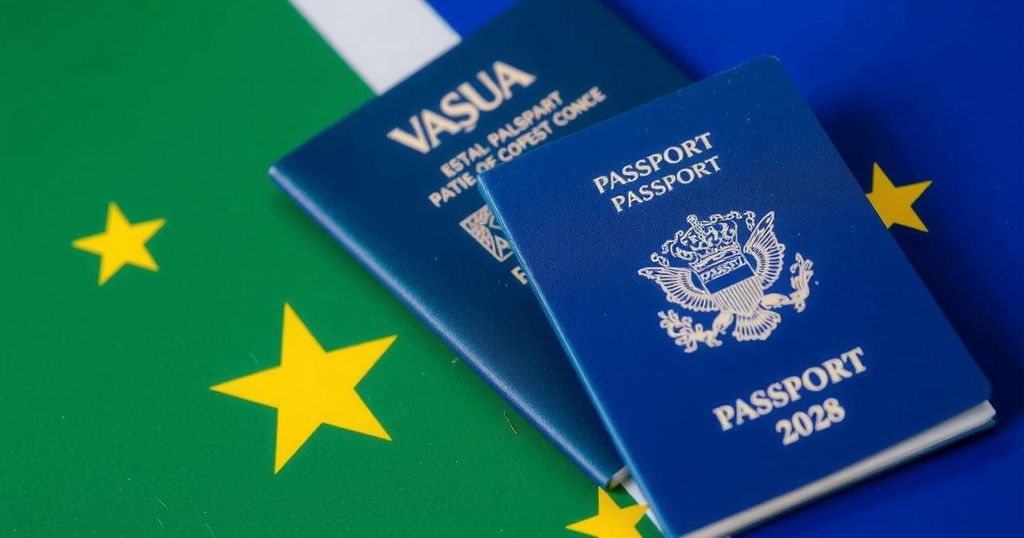Vanuatu has lost its visa-free access to the EU Schengen area due to inadequate vetting in its citizenship by investment program, raising serious security concerns. This has implications for neighboring nations like Solomon Islands and Nauru, which are considering similar programs. Lessons from Vanuatu’s experiences highlight the need for responsible CBI implementation to avoid reputational and diplomatic fallout.
Earlier this month, Vanuatu faced significant repercussions from the European Parliament, becoming the first country to lose its visa-free access to the Schengen area due to its controversial citizenship by investment (CBI) program. This decision underscored the need for vigilance in such schemes, as highlighted by rapporteur Paulo Cunha, who noted that Vanuatu exhibited inadequate cooperation, leading to substantial security concerns. All citizenship applications were reportedly approved without thorough vetting, prompting claims that Vanuatu was “selling its citizenship and abusing the European Union’s trust.”
The fallout from this decision serves as a cautionary tale for neighboring nations, particularly the Solomon Islands and Nauru, now considering similar CBI programs. The Solomon Islands has announced a forthcoming CBI bill, aiming to attract investments by offering visa-free travel to Europe, echoing Vanuatu’s marketing strategy. In parallel, Nauru is launching a CBI initiative as a response to pressing climate financing needs, positioning itself as a competitive player in the CBI market with attractive features such as minimal residency requirements and access to 89 countries for a fee of approximately $140,000.
Vanuatu’s experience illustrates that while CBI programs can initially boost revenues, they also carry inherent risks, including loss of reputation and diplomatic relations. The Island’s citizenship program once filled a vital financial gap, but the EU’s decision to suspend Vanuatu’s visa privileges has diminished the power and value of its passports, raising concerns about the long-term implications.
As the Solomon Islands and Nauru move forward with their CBI ventures, they must heed Vanuatu’s mistakes, particularly regarding thorough background checks and engagement with international authorities to ensure the legitimacy of applicants. A lack of robust infrastructure and regulatory oversight may threaten the effectiveness and credibility of these programs.
Ultimately, the experiences of Vanuatu should resonate with Solomon Islands and Nauru to foster a more responsible approach to citizenship commodification, emphasizing the importance of maintaining national dignity and ensuring public safety.
The article discusses Vanuatu’s recent loss of visa-free access to the EU’s Schengen area, attributed to its citizenship by investment (CBI) program. This situation emerged after the European Parliament’s critique of Vanuatu’s inadequate applicant vetting processes, which raised security threats. Other Pacific nations like Solomon Islands and Nauru are considering similar CBI programs, highlighting the economic motivations and challenges faced by smaller nations in the context of global citizenship trading.
In summary, Vanuatu’s withdrawal from visa-free access serves as a critical warning to the Solomon Islands and Nauru regarding the pitfalls of citizenship by investment programs. The calls for better oversight, rigorous application processes, and maintaining the integrity of national identity are paramount. Adopting a more cautious and well-regulated approach may help these nations avoid the repercussions that Vanuatu currently faces and uphold their political and economic standing in the international community.
Original Source: www.rnz.co.nz






